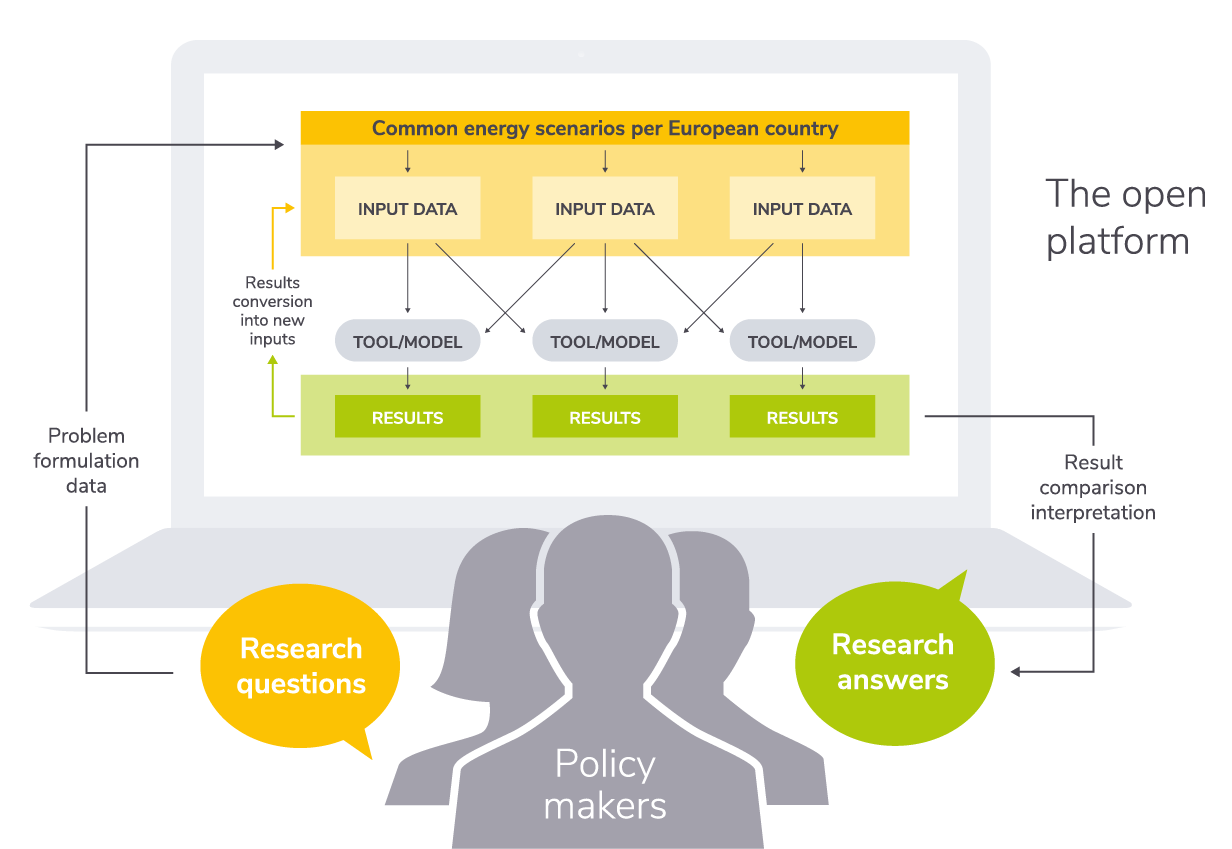/ May 01, 2019 - April 30, 2023
openENTRANCE
open ENergy TRansition ANalyses for a low-Carbon Economy
| Partners | Universidad Pontificia Comillas, Deutsches Institut für Wirtschaftsforschung e.V., Technical University of Denmark, Electricité de France SA, EI – Energieinstitut an der Johannes Kepler Universität Linz,International Institute for Applied Systems Analysis,Kadir Has Universitesi,Norwegian University of Science and Technology, SINTEF Energi AS (project coordinator), Nederlandse organisatie voor Toegepast Natuurwetenschappelijk Onderzoek,Technische Universität Wien,Technische Universität Berlin, World Future Council |
| Funding |
European Union’s Horizon 2020 research and innovation programme under grant agreement No. 835896 |
| Duration | 01.05.2019 - 30.04.2023 |
| Scientists | Philipp Härtel (Project Manager), Felix Frischmuth |
openENTRANCE aims at developing, using and disseminating an open, transparent and integrated modelling platform for assessing low-carbon transition pathways in Europe.
Open Modelling Platform
openENTRANCE develops an open, transparent and integrated modelling platform for assessing low-carbon transition pathways in Europe in line with the European and global climate, economic and energy targets. The platform will gather a suite of state of-the-art modelling tools and data for covering the multiple dimensions of a clean energy transition. Macro-economic and energy-system models will be linked to each other in order to allow integrated analyses, moving beyond the unidimensional analysis that each of the models offers separately.
Modelling Tools
The openENTRANCE modelling platform will be populated with a suite of open integrated modelling tools developed from present state-of-the-art approaches in the consortium. For example, some models analyse macro-economic issues and others energy system planning.
Building on the experience gained in previous research projects and the results obtained in them, openENTRANCE aims to build an extensive toolbox based on linked models made available by the consortium partners and make use of it to illustrate its functioning and provide policy recommendations. The modelling tools provided by the consortium are at the research frontier in Europe.
Scenarios and Transition Pathways
openENTRANCE will develop complete and consistent scenarios for transitioning to low-carbon futures in open collaboration with stakeholders through workshops. The scenarios will provide valuable insights about the future energy system based on present assumptions of opportunities and barriers to reach a low carbon Europe.
Moreover, openENTRANCE will develop energy transition pathways in relation to the reference scenarios, in order to provide strategic recommendations to policy-makers to reach a low carbon Europe. The pathways will include specific technology choices and innovations, as well as socio-economic and other social and human aspects related to these.
Case Studies
openENTRANCE will analyse the new challenges of the energy transition and demonstrate the ability of the project to answer a wide range of questions linked to the energy transition by carrying out case study simulations. These case studies cover different key aspects of the energy transition in Europe, based on the targets for the EU Energy Union. For example, the role of different technologies to enhance the flexibility of the energy system, or the energy demand behaviour of communities.
As part of its open nature, openENTRANCE will discuss the relevance of the case studies with stakeholders in workshops. The case studies will also serve to test and demonstrate the functioning of the modelling platform and the linkages between models through the analysis of eight case studies.
Role of Fraunhofer IEE
Fraunhofer IEE will connect its SCOPE Scenario Development (SD) modelling and optimisation framework to the Open Platform. As the leader of the case study on cross-sectoral flexibility, our SCOPE SD model will be linked with the plan4EU model by EDF to investigate cross-sectoral flexibility of the transport sector in the national and regional domain.

